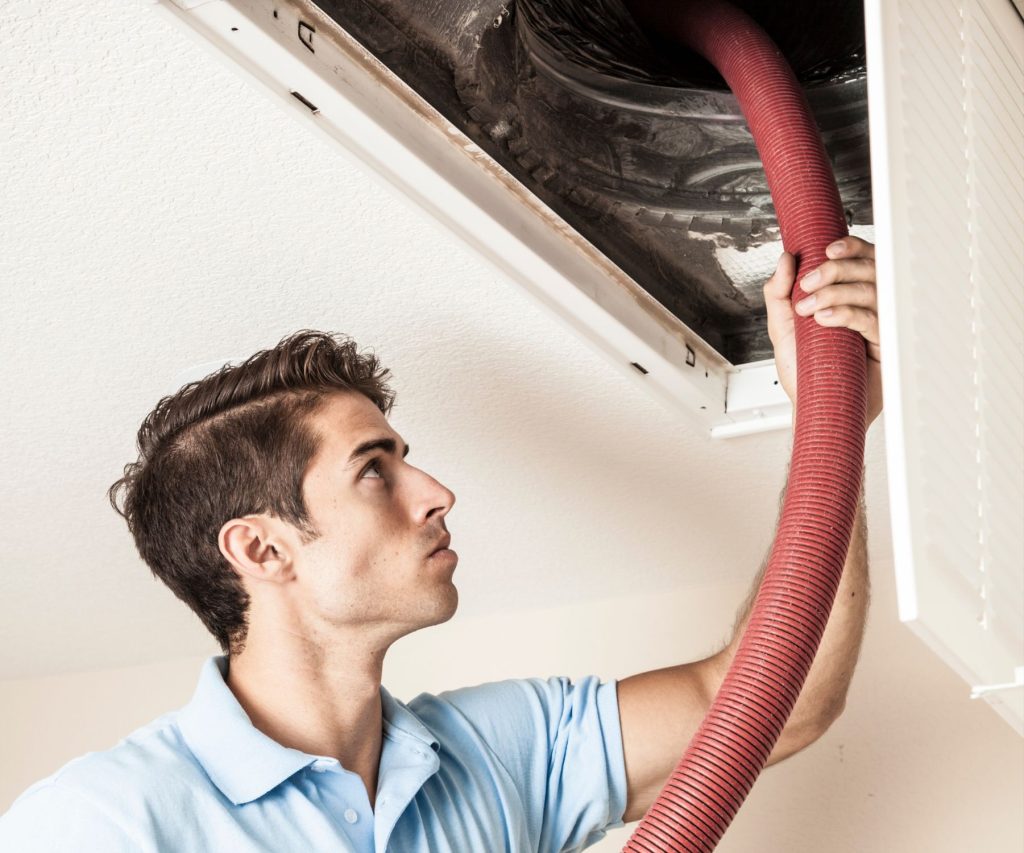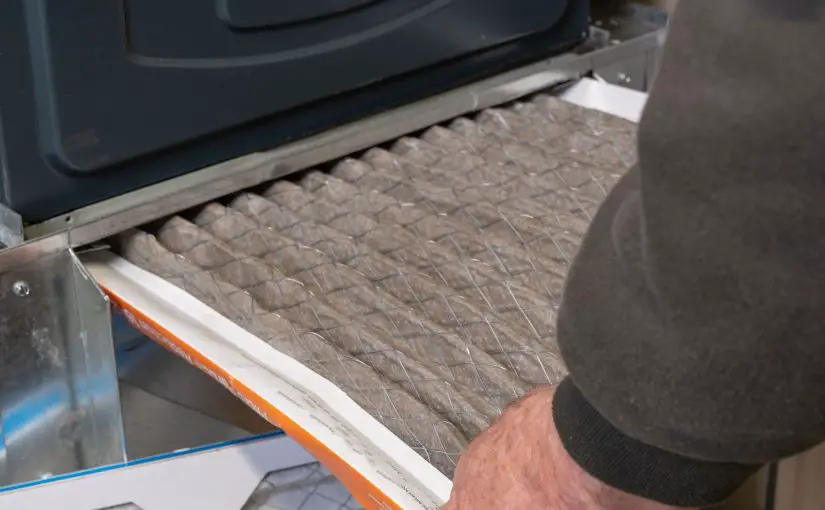Table of Contents
Is Your Furnace Causing Allergies?
Furnaces are essential for keeping our homes warm and comfortable during the colder months. However, they can also contribute to allergy and asthma symptoms if not properly maintained. Dust, pollen, and other allergens can circulate through furnace systems and get blown into the air we breathe. Understanding how your furnace impacts allergies and following some simple maintenance steps can help minimize allergy flare-ups.
How Furnaces Can Contribute to Allergies
There are a few key ways that furnaces can stir up allergens in your home:
- Air filters – If the furnace air filter is dirty, dust and other allergens can pass through into the air ducts and spread through your home.
- Dusty ductwork – Over time, dust accumulates inside the furnace ductwork. When the system turns on, this dust gets blown out into the living spaces.
- Cold air return – Allergens from around the house get sucked into the cold air return and circulated through the home.
- Humidifier reservoirs – If you use a furnace humidifier, mold and bacteria can build up in the water reservoir and get dispersed into the air.
For allergy sufferers, this means that running the furnace can stir up dust, pet dander, pollen, mold spores, and other allergens. The constant circulation of air means these allergens stay in suspension rather than settling out. This leads to increased allergy and asthma symptoms like sneezing, coughing, stuffy nose, irritated eyes, and wheezing.
Maintenance Tips to Reduce Furnace Allergens
Here are some furnace maintenance steps you can take to help minimize the allergens circulating in your home:
Change the Air Filter Frequently
Replacing your furnace air filter is one of the most effective ways to reduce airborne allergens. Aim to change the filter once a month during peak heating season. Use a high efficiency pleated filter rated MERV 11 or higher to capture more dust and allergens.
Have Ductwork Professionally Cleaned
Over time, dust builds up in the furnace’s ductwork. Hire an HVAC professional to thoroughly clean the ducts and sanitizing the system. This should be done at least every 3-5 years.
Clean Cold Air Returns
Use a vacuum with a HEPA filter to regularly clean out the cold air return grills. This prevents dust buildup that could get sucked into the system.
Check Humidifier Settings
If you use a furnace humidifier, set it below 50% humidity to discourage mold growth. Also be sure to regularly clean and disinfect the humidifier per manufacturer instructions.
Replace Furnace Filter at Start of Season
When first turning on your furnace for the season, be sure to start with a clean filter. This prevents any dust that settled over the off-season from circulating.
Have an HVAC Professional Service Annually
Have an HVAC technician inspect your furnace before each heating season. They can clean components, check for leaks or cracks, and ensure proper airflow. This helps optimize efficiency and reduce allergen circulation.
Consider a Whole-House Air Purifier
A whole-house air purifier installed on your furnace can filter out allergens as air circulates. Look for true HEPA models rated for your home’s square footage.
Use Standalone Air Purifiers
Use HEPA air purifiers in bedrooms and main living areas to double down on allergen removal. This catches any allergens that make it past the furnace system.
Change HVAC Filters Before Severe Allergy Seasons
Periods like spring and fall when pollen is high are critical times to stay on top of filter changes. Swap filters out more frequently to keep up with increased allergens.
Other Tips for Allergy Relief
While maintaining your HVAC system is important, there are other steps you can take to reduce allergy symptoms:
- Use allergen-proof bedding encasements
- Limit use of rugs, curtains, and upholstered furniture
- Keep pets out of bedrooms as much as possible
- Shower after spending time outdoors to rinse off pollen
- Close windows and run A/C during peak pollen seasons
- Wash bedding on hot water weekly
- Invest in an advanced vacuum with HEPA filtration
- Consider allergy treatments like nasal sprays, antihistamines, and immunotherapy
 When to Call an HVAC Professional
When to Call an HVAC Professional
If you are continuing to experience allergy issues even after stepping up your furnace maintenance, it may be time to call an HVAC technician. Signs it’s time for professional help include:
- Seeing dirt or dust blowing out of vents
- Noticing musty odors when furnace runs
- Developing new, unexplained allergy symptoms
- Existing allergy symptoms getting dramatically worse
- Frequent sinus infections, coughs, or wheezing
A technician can inspect the system for any cracks, leaks, or blockages that could be contributing to poor air quality. They can also evaluate the safety and efficiency of an older furnace to determine if an upgrade is warranted.
Frequently Asked Questions
How often should you change your furnace filter?
For optimal allergy relief, aim to change furnace filters every 30 days during peak heating season. MERV 11 or higher pleated filters are recommended for allergy sufferers.
What causes dust to blow out of vents?
Dust blowing from the vents is typically caused by a very dirty air filter allowing debris to enter the ductwork. Dusty ductwork that has not been properly cleaned can also get stirred up when the furnace runs.
Can replacing a furnace help allergies?
Replacing an older or faulty furnace with a new, efficient model can improve allergies. New furnaces have tighter seals, proper airflow, and compatibility with high-efficiency filters to better filter allergens.
Do air ducts need to be cleaned?
Yes, air duct cleaning by a professional is recommended every 3-5 years to clear out dust, dander, and other allergens that accumulate in the system.
When should you run a furnace humidifier?
Only run a furnace humidifier during the colder months when the air is very dry. Keep the setting below 50% humidity. Turn it off during warmer seasons to avoid potential mold growth.
Can dirty vents make allergies worse?
Yes, dirty air vents prevent proper airflow and can blow dust and other allergens into the home. Cleaning vents regularly with a HEPA vacuum can help reduce allergy flare-ups.
Should I shut off my furnace during allergy season?
It’s not necessary to shut off your furnace completely during allergy season. With proper maintenance like frequent air filter changes, duct cleaning, and professional servicing, you can safely run it to keep your home comfortable.
The Bottom Line
Running your furnace doesn’t have to mean allergy misery. With some diligent maintenance like frequent filter changes, duct cleaning, and professional servicing, you can keep your system running cleanly and minimize allergy triggers. Pay attention to any allergy flare-ups that develop so you can identify necessary system repairs. Keep up with other allergy-proofing steps like using air purifiers, washing bedding often, and managing indoor humidity. With a few adjustments, you can strike a balance between staying cozy and staying allergy-free all winter long.
For more information, visit this National Institute of Health resource .

